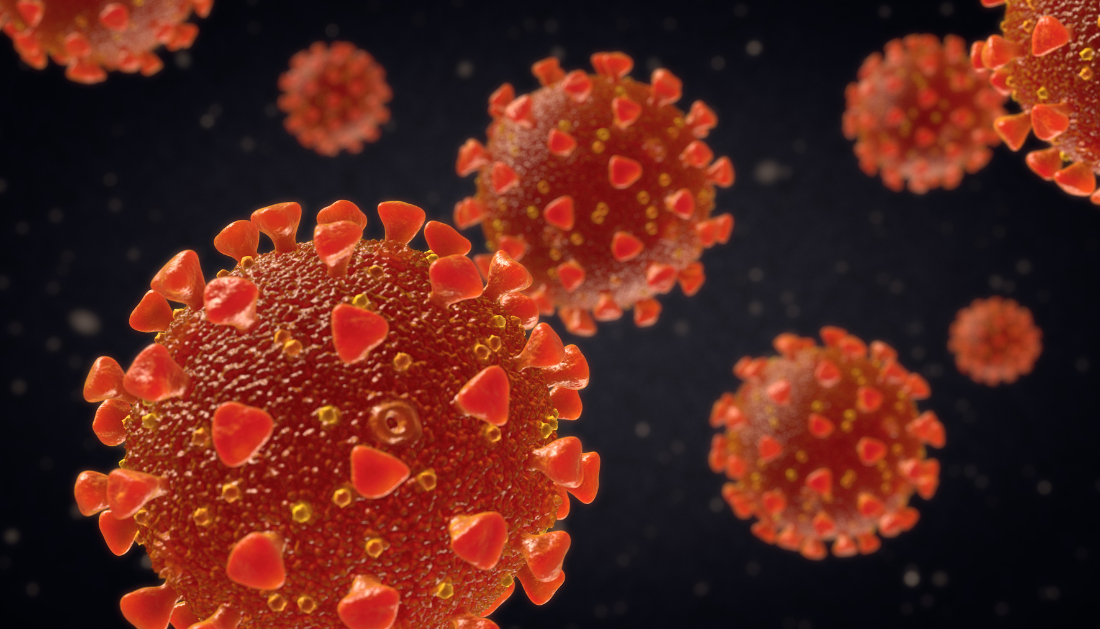

The Unexpected Protective Role of Rhinoviruses in COVID-19
A groundbreaking study from National Jewish Health has revealed an intriguing phenomenon: recent infections with the common cold, primarily caused by rhinoviruses, may offer temporary protection against SARS-CoV-2, the virus responsible for COVID-19. This discovery provides critical insight into the longstanding observation that children are less likely than adults to experience severe COVID-19 symptoms.
Explore All Pulmonology CME/CE Conferences
Published in the Journal of Infectious Diseases, the study suggests that exposure to common respiratory viruses could prime the immune system, activating antiviral defenses that reduce susceptibility to subsequent SARS-CoV-2 infection. These findings could reshape our understanding of host-virus interactions and guide future strategies in pediatric and adult COVID-19 management.
How Recent Cold Infections Prime Antiviral Defenses, affecting SARS-CoV-2
The research analyzed data from over 4,100 participants across 1,394 households as part of the HEROS study, spanning May 2020 to February 2021. Using thousands of self-collected nasal swabs, the team tested for SARS-CoV-2 and other common respiratory viruses, including rhinovirus, to examine how recent viral exposures influenced the body’s antiviral response. Researchers observed that participants, particularly children who had recently experienced a rhinovirus infection, were significantly less likely to contract SARS-CoV-2 in the subsequent weeks.
“Our findings suggest that the immune boost from a recent cold may give the body an early advantage in fighting SARS-CoV-2 before it has a chance to take hold. This may help explain why children, who tend to get more colds than adults, generally experience fewer and less severe COVID cases.”
Max Seibold, PhD, senior author of the study, researcher, and Director of the Regenerative Medicine and Genome Editing Program (REGEN) at National Jewish Health
This protective effect is linked to a heightened interferon response, a crucial component of the innate immune system that acts as the body’s first line of defense against viral infections. By activating antiviral pathways, the immune system may temporarily reduce viral replication and improve the ability to resist infection. These results also provide evidence for heterologous viral interference, a process where one virus can modify the body’s response to another, offering valuable insights for clinical monitoring, infection control, and immune response research.
Implications for Healthcare Practice on SARS-CoV-2
Children naturally experience more colds and exhibit higher baseline interferon-related gene expression, which may explain their relative protection from severe COVID-19. The study emphasizes the concept of heterologous viral interference, where infection with one virus influences the body’s response to another. Although intentionally catching a cold is not advisable, understanding this immune interplay could guide new preventative approaches, particularly for high-risk patients, and aid clinicians in anticipating viral susceptibility patterns.
Research and Clinical Relevance
The study, led by Max Seibold, PhD, with contributions from Camille Moore, PhD, and collaborators across 12 U.S. cities, suggests a potential paradigm for respiratory virus management. HCPs and nurses can use these insights to better understand pediatric COVID-19 responses, plan immunization timing, and tailor patient care in settings with concurrent respiratory infections. Further investigation into immune priming via viral exposure may also support strategies to mitigate infection severity in adults.
For More Information:
Moore, C. M., et al. (2025). The Common Cold Is Associated With Protection From SARS-CoV-2 (Rhinovirus) Infections. The Journal of Infectious Diseases. doi.org/10.1093/infdis/jiaf374.
more recommended stories
 Breast Cancer Prognosis Linked to High-Fat Diet
Breast Cancer Prognosis Linked to High-Fat DietKey Points A high-fat diet accelerated.
 Advanced Prostate Cancer and Serial ctDNA Analysis
Advanced Prostate Cancer and Serial ctDNA AnalysisKey Takeaways Serial liquid biopsies using.
 Tuberculosis Breakthrough with Experimental Antibiotics
Tuberculosis Breakthrough with Experimental AntibioticsKey Takeaways Experimental antibiotics disrupt a.
 National Healthy Longevity Trial Receives Federal Support
National Healthy Longevity Trial Receives Federal SupportKey Summary Up to $38 million.
 Vascular Health Linked to Early Alzheimer’s Brain Changes
Vascular Health Linked to Early Alzheimer’s Brain ChangesKey Takeaways Brain vascular health is.
 Red Blood Cells Improve Glucose Tolerance Under Hypoxia
Red Blood Cells Improve Glucose Tolerance Under HypoxiaKey Takeaways for Clinicians Chronic hypoxia.
 Pediatric Crohn’s Disease Microbial Signature Identified
Pediatric Crohn’s Disease Microbial Signature IdentifiedKey Points at a Glance NYU.
 High-Fat Diets Cause Damage to Metabolic Health
High-Fat Diets Cause Damage to Metabolic HealthKey Points Takeaways High-fat and ketogenic.
 Can Too Many Antioxidants Harm Future Offspring?
Can Too Many Antioxidants Harm Future Offspring?Key Takeaways High-dose antioxidant supplementation in.
 Human Antibody Drug Response Prediction Gets an Upgrade
Human Antibody Drug Response Prediction Gets an UpgradeKey Takeaways A new humanized antibody.

Leave a Comment